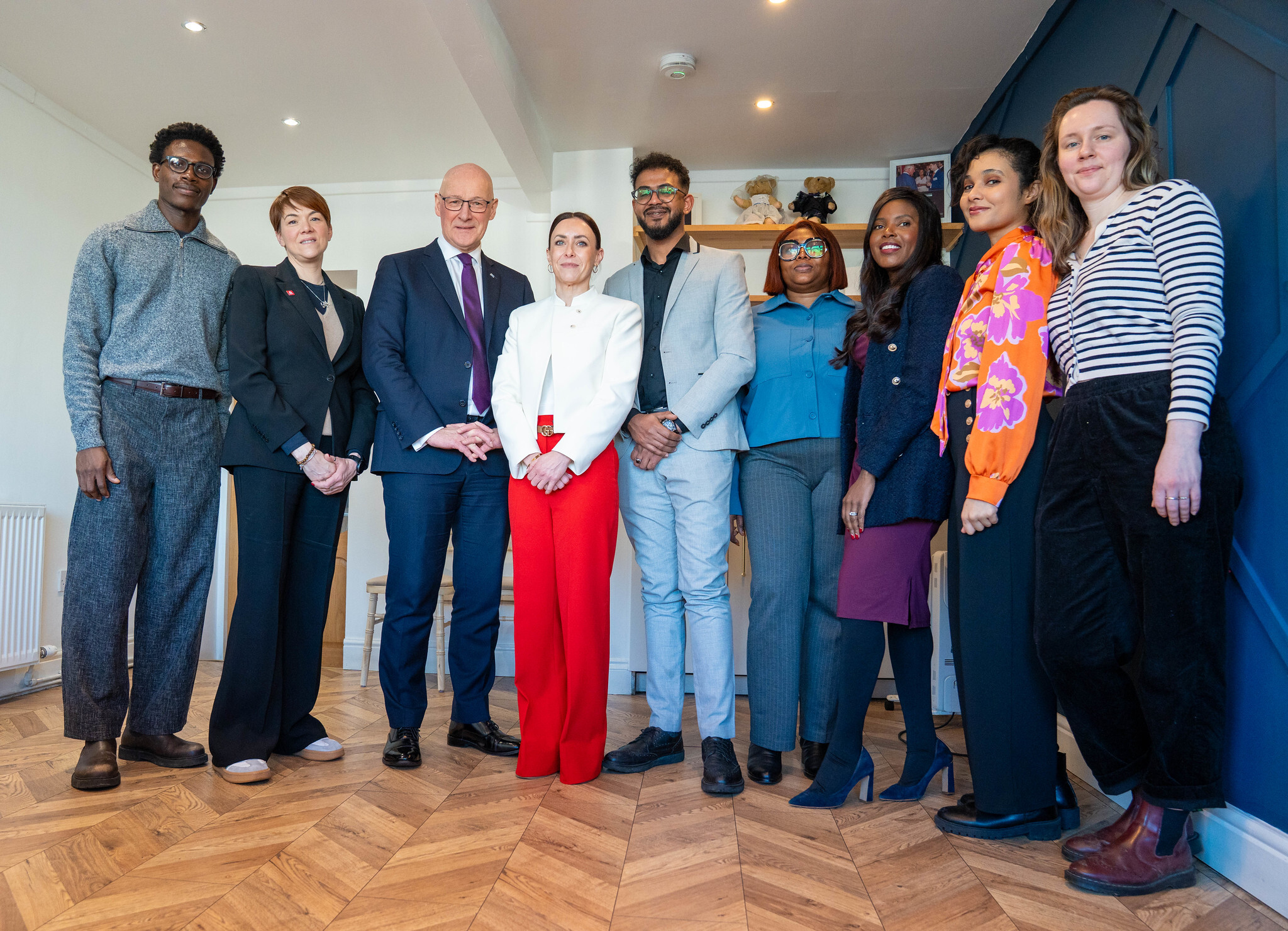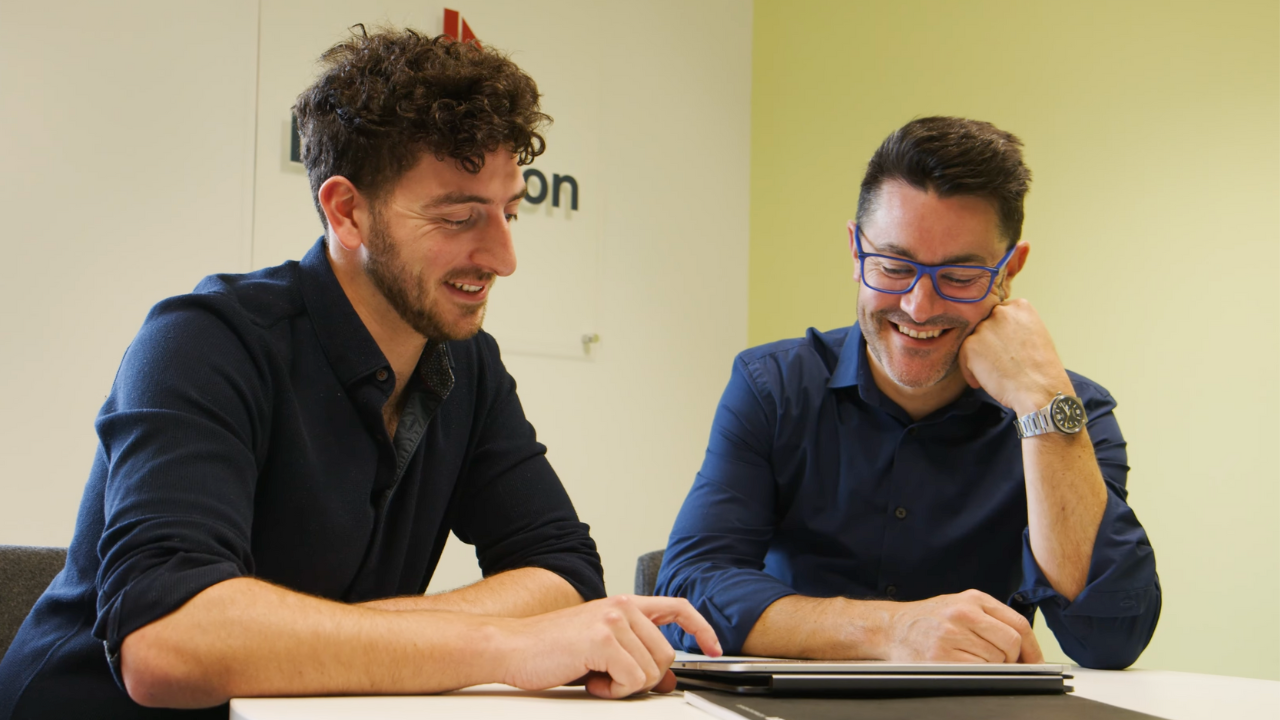With Entrepreneur in Residence Steve Tigar, Founder/CEO of loveelectric
It works like the popular 'bike-to-work' scheme — in which employees commit a portion of their salary in return for a new electric car, typically saving 50% of the costs through income tax and national insurance savings
The company wants to support all businesses, big and small, in empowering their staff to make the switch to electric — and generally companies that have been trading for 2 years and are in profit are eligible to join the loveelectric scheme.

I graduated from St Andrews, I loved living in Scotland and I have Scottish family (although my accent’s a bit all over the place!). I was brought up in London, and prior to that lived in Vienna. But after graduating I wanted to stay in Scotland, and was going to move to Glasgow or Edinburgh.
I was lucky enough to get a job as a Graduate Trainee at an ad agency, and I’m not sure anyone there knew what ‘Graduate Trainee’ meant other than definitely ‘tea boy’! Aside from that, I was just getting stuck in and doing everything else, basically.
I really enjoyed that job, and worked my way up — but there was an interesting period where, as the ‘digital revolution’ was happening, the agency (quite focused on broadcast marketing — TV, radio etc.) was moving quite slowly to evolve. And so, whereas beforehand the business was doing so well, it now began rationalising and shrinking, and it was quite demoralising. This really got me thinking that I wanted to learn more about how to take advantage of these changes in markets, rather than being on the ‘receiving end’.
I was lucky enough to get a place as a Saltire Fellow in 2010 and went off to America as part of it. This was an incredible experience — being exposed to a completely different way of thinking, and being taught by ‘serial entrepreneurs’ that were really inspiring but also very gifted at teaching.
Coming back to Scotland, we were all really ‘fired up’ to really go and make a difference, and I was thinking about starting my own thing at the time — but when my wife became pregnant I had to reassess and quickly get a job, ideally one where I could employ the skills I had learned.
The owner of LettingWeb — which is still the largest rental property marketplace in Scotland — was looking for a Managing Director to come in and run the business. So it was an amazing opportunity to go into a relatively small business — six or seven employees — with a pretty decent client base and try and grow it. And I think we got it up to about 25 staff, and doubled the revenue, and it was a profitable business. It was also at a time that, while we were growing quite well, RightMove and Zoopla were just taking on huge amounts of capital and growing, hand over fist. So, as a strategic decision LettingWeb struck a strategic partnership with Zoopla, which was great.
And then I moved on to Money Dashboard — one of the few venture capital backed businesses in Edinburgh — and I wanted to stay in the city, I was quite settled there. Eventually, I think after seven great years at that business I was desperate for a fresh challenge — and I always said Money Dashboard would be ‘my last apprenticeship’ — so loveelectric was my next step and my first start-up.
It’s important to have a long term horizon and plan — but a solid decision-making strategy for your career is to always try and make a choice that creates more choices.
Off the back of Money Dashboard, I had a really attractive offer to head up innovation for a listed business — a really interesting role, with lots of security. It kind of came at the worst possible time, as I was starting to seriously think about starting my own thing, and so it was a really good test of desire and drive.
My motivator to start loveelectric was in creating something, rather than managing something that’s stable. And also the freedom that brings - to have more control over what it looks like and what it feels like. It’s really exciting to have a blank canvas.
I always find it quite interesting when you look at studies — Harvard Business Review are quite good at this — and they interview a whole bunch of execs in their fifties, coming towards the last period of their career, perhaps, and they always ask what their biggest regret is. And inevitably they always say it’s that they wish they had taken that opportunity. They’ve gone on to have successful careers, of course, but the regret never goes away.
I’m not that far from 40, and I know I’d regret it if I didn’t made that move — from 'intrapreneur' to entrepreneur — and probably be in line for a mid-life crisis too! It’s important to have a long term horizon and plan — but a solid decision-making strategy for your career is to always try and make a choice that creates more choices.
I remember speaking to (former ES Chief Exec) Sandy Kennedy after the Saltire Fellowship. I had been in advertising for a number of years and looking for the next steps, and upon reviewing my CV he told me I could afford to ‘make a mistake’. I thought this was great advice — because I think often people feel a bit trapped, and don’t think they can try new things.
loveelectric was born a certified B Corp.
It's a really powerful way of walking the talk. One of most important things when I was talking to my wife (and Co-Founder) about the new business was what sort of business do we picture? What’s the ‘why’ behind the enterprise?
We came to the shared conclusion that we wanted to build something that we were really proud of, where the staff enjoy working there, where the customers get a great experience, where we’re making a bit of a difference — donating 10% of our profits to charity, for example. The most important thing to us was doing things the right way, and so we wondered what the best way to formalise that was — so that it’s not just well-meaning corporate waffle.
The B Corp seems to be the best certification process — particularly for smaller businesses. It's an intensive process that we're undergoing at the moment, and it's often challenging to find the time and resources to ensure we meet the requirements, but it’s very important to us.
Of course, there’s a commercial element — we are selling into HR departments, and in our particular market, trust is vital. People don’t always associate the car trade, generally, with trust and confidence, so we wanted to know the best way to engender that trust really quickly, as a new business.
The best way we could see, was to have an independent ‘auditor’ come in and scrutinise us, and score the business. If there are areas to improve, then that’s great to know. Someone coming in and assessing your business like this is actually a really positive thing.
The other thing I really like about B Corp is that they insist that you include in your Articles of Association that you will be a B Corp, and that you will balance profitability with planet and people. I think that’s really positive. We’ve taken on capital from venture capitalists and angel investors, and they’ve agreed to this as part of their involvement with us. There’s no surprises down the line — it’s part of who we are as a business.
I think you’re also seeing a generation of entrepreneurs coming through who really passionately care about this problem, and are putting their minds to work on innovative solutions.
I think businesses and entrepreneurs are a hugely important part of the climate emergency solution.
I’ve been speaking to venture capitalists a lot recently, and they’re almost struggling to keep up with all the new businesses that are starting in this space. I think you’re also seeing a generation of entrepreneurs coming through who really passionately care about this problem, and are putting their minds to work on innovative solutions.
I think that wave of new innovative solutions is really exciting — and that always encourages larger firms to follow suit, and that’s what amplifies it.
Everyone’s waking up to the reality — the consumer demand is there, people want to know what they can do differently and play their part.
I think there are opportunities for recent grads — the job market is very buoyant. You see a lot in the press about unemployment, but I think anyone who is smart and ambitious should be able to find routes into their early career path.
There are a huge number of opportunities, and not just locally. People can enter into a global job market if they’re willing to work remotely. If you’re a recent grad or approaching graduate from Scottish unis, cast the net a bit wider.
The fact that students have come through a tough period of studying and working remotely can be utilised as a virtue when appealing to prospective new employers. I think anyone who has been through higher education in previous eras will have a great deal of sympathy — as university is traditionally a time when people develop really important relationships and good life skills. Students during the pandemic have had to adapt and are probably, as a result, much better equipped for the modern workplace and remote working systems that are in place now.
It’s difficult, as graduates who have only worked remotely may not have a ‘traditional’ workplace experience to benchmark against — but my best advice is to try your best to get involved, network, develop relationships and adapt. It’ll be time well spent.
A big part of it is the humility to test your ideas — and not just be driven entirely by instinct.
What I’ve found is that entrepreneurs are full of ideas. Most of them won’t go anywhere, but some of them are real gems. So the real question is how do you sift them down, qualify them and validate the viable ideas as quickly as possible?
For loveelectric, I felt it was a strong idea but wanted to test it. So, I followed The Lean Startup method — which I think is really good — where you determine and write down your Value Hypothesis and Growth Hypothesis. On the value side I thought it was pretty clear — does a half price electric car make people want to sign up to this service? I thought ‘probably’ — but I still wanted to test it further. And the growth was geared around whether employers would implement it in their companies.
So, to test my Value Hypothesis, I built a landing page and messaged 1000 contacts on LinkedIn to see if they’d be interested in signing up for a ‘waiting list’ for early access to the service. In my financial model, with rough projections, I had an expected response rate of 5%, and it ended up being 25-30%. These were people not signing up to the service, as such, but they were interested enough to leave their email address — and I felt that was a pretty strong signal of demand.
On the business side, I just pitched to about 15 businesses — arranged some calls and delivered a slide deck, and all of them said they couldn’t see any reason why they wouldn’t want to sign up. That was really strong validation too.
Testing also helps when the results aren't positive. I actually had another idea I was testing in parallel — a sustainable energy switching business. In hindsight, I’m now really pleased I didn’t do it — though of course no-one really could foresee the shock that was coming in the market. That was a different idea, and it totally bombed in research. I really liked it, and the venture capitalists I spoke with liked it, but when I went to customers it was terrible — nobody had any interest in the concept! So that was clear for me, I just shelved it and didn’t devote any more time to it.
I think a big part of it is the humility to test your ideas — and not just be driven entirely by instinct. Everyone loves their own ideas, but the discipline to follow through on testing is so important. Also important is setting parameters for your results before you test it — it’s amazing how easy it is to do research and then ‘reframe’ results to reflect more positively on the idea.
-----
Read our previous Case Study with Steve, during his time at Money Dashboard, here.
Follow Entrepreneurial Scotland on LinkedIn, Twitter and Facebook for the latest news, events and opportunities.
Don’t miss out on exclusive content from business leaders at the forefront of championing and developing an entrepreneurial culture in Scotland, sign up for our next issue of ES:CONNECT.

From real-time dashboards to cost-saving automation - structured internship programmes deliver commercial results. Here's how to make them work.

Young entrepreneurs will be supported to turn their ideas into successful businesses through a new Scottish Government programme.

An internship through the Saltire Scholars Programme helped Donaldson Group create Spec3D, a new 3D visualisation business now used by house builders across the UK.